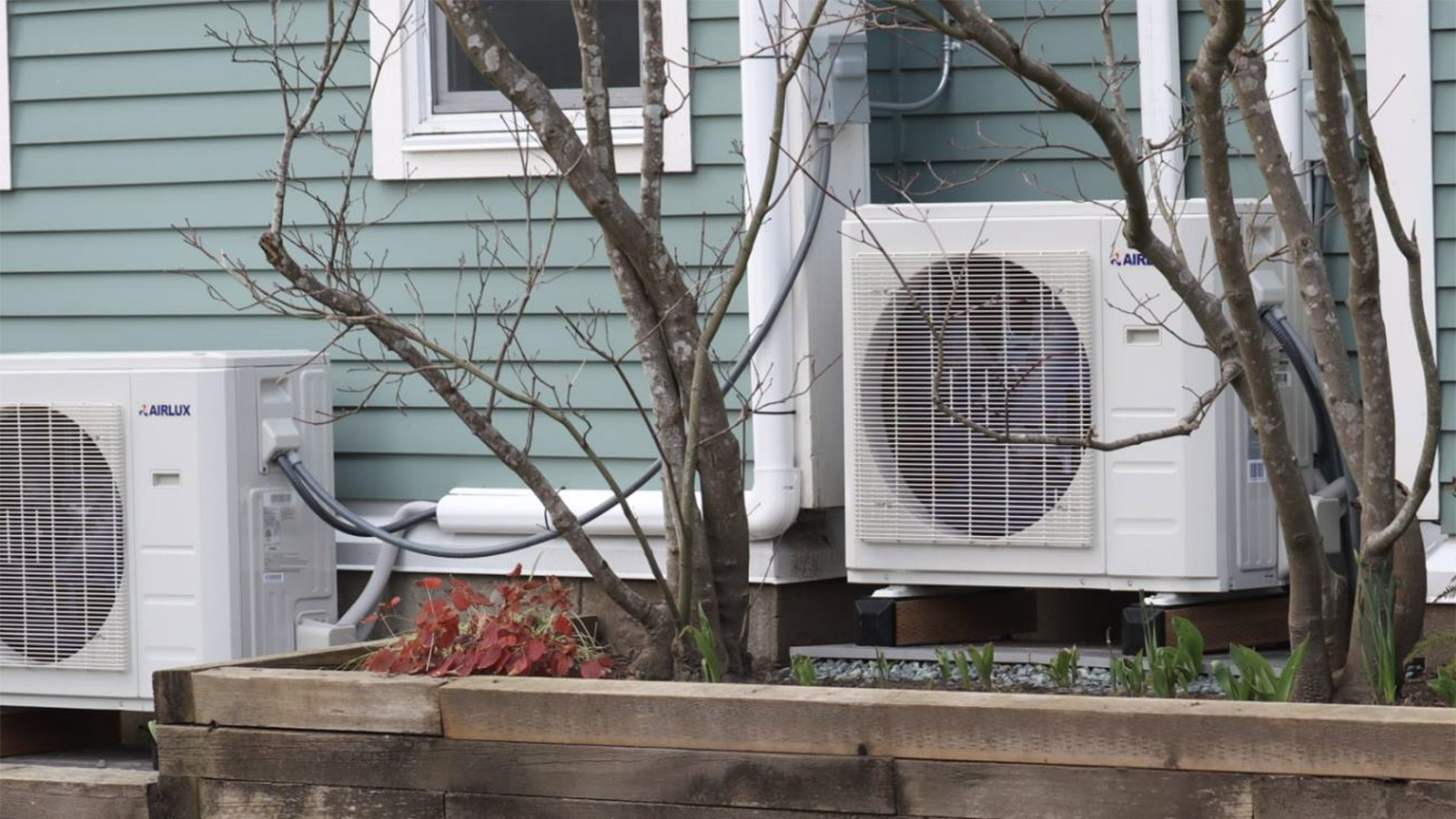ENVIRONMENTAL
SUSTAINABILITY
Housing co-ops have long been interested in the environment. Some co-ops were early adopters of energy efficient technologies and committed to recycling and waste sorting even before municipalities made significant moves in those directions. There is much work to do and co-ops regard that work as ever more urgent. Here we collect some news and resources to help you.

Green Co-ops
Individual action is important—the choices each of makes matters—but government and business set regulations and the frameworks with live with and in. Where do housing co-ops fit in?
There are two broad areas: (1) how co-ops deal with their buildings directly, and (2) how co-ops manage their day-to-day operations and influence behaviours in their members.
Our Buildings
Canada’s building sector is the third highest source of emissions in the country. Heating and cooling use energy, so choosing and maintaining efficient systems is important.
The materials we select when building or renewing capital assets also matter. Where do the materials come from? Are they sustainable? Do any of them create health concerns?
Our Behaviors
An estimated one third of our global emissions are tied to our behaviors. Daily choices such as taking transit, choosing more plant-based meals or opting for the non-packaged kiwis while we shop, can have a significant cumulative impact on emissions.
When we as a communities take control of how we make these options easier to individuals, we can affect real change. Members in co-ops can work collectively to reduce consumption (through sharing), to invest ethically, to lobby, to educate each other on best practices, to grow food locally or create habitats for native species or those that require less water to maintain.

Actions towards Sustainability
Co-ops and their members can take a wide range of actions that have environmental impacts.
Get motivated! Download a partial list of actions taken by co-ops to improve their sustainability. Tell us about what your co-op has done! Here are some high-level ideas:
- Consider the long-term impacts of purchasing decisions and building renewals beyond dollar costs alone (ethics and environmental protection).
- Create and maintain habitats that support life, and in particular native species.
- Commit to choosing energy-efficient products (appliances, lights) and building systems.
- Manage waste responsibly (which can include marking drainage gates and encouraging members not to dump chemicals).
- Maintain boilers, water tanks and sewer lines to avoid leaks and contamination.
- Using clean/renewable energy where possible.
- Work within the co-op and outside the co-op to promote use of partners that favour sustainable supply chains.
- Make use of bulk-buying opportunities and plan ahead to minimize total costs.
- Commit to reducing food losses and optimizing disposal of waste (reuse > on-site composting > green waste streams > landfill disposal)
- Promote landscaping appropriate to a changing climate.
- Develop emergency preparedness plans and supplies.
- Lobby for more systematic changes by voting and contacting your political representatives to let them know these issues are important.
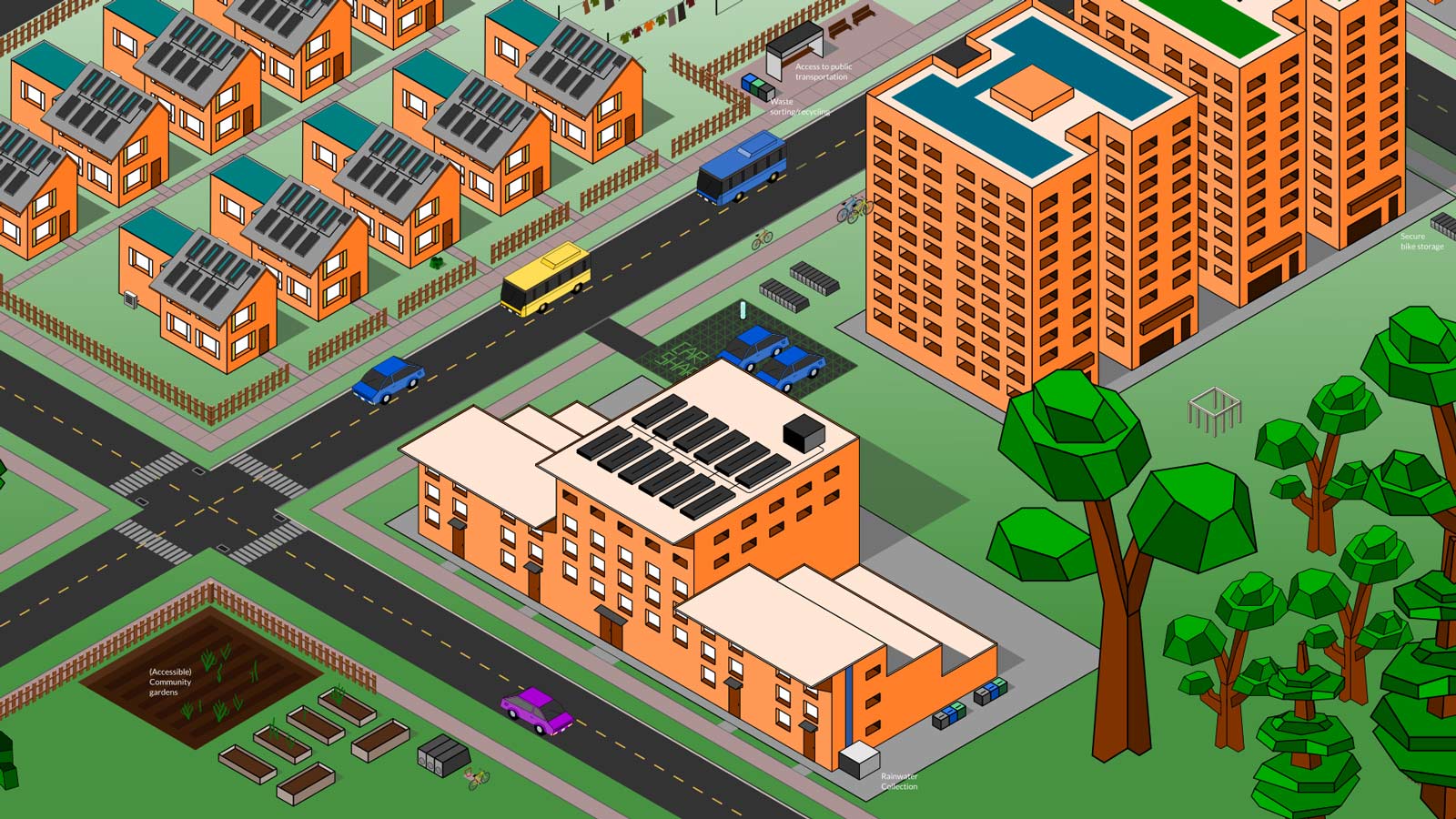
Sustainability Policies
Sustainability is something that concerns co-op members directly and also ties into the broader co-op principle of concern about community.
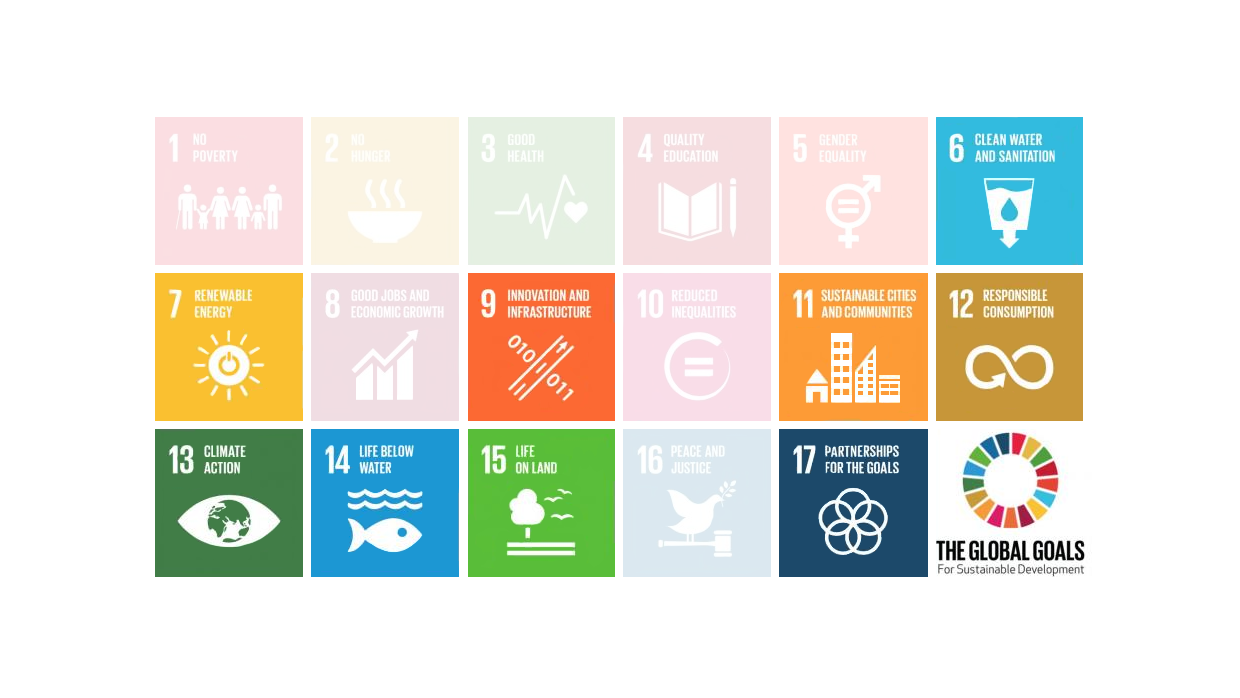
Sustainability Goals
The United Nations, in its 2030 Agenda for Sustainable Development, set out 17 Sustainability Goals. Many of these are tied to environmental concerns and demonstrate how environmental challenges also connect to social justice issues.
Many of the targeted areas of action are relevant to how housing co-ops operate. In particular, co-ops make decisions that can affect efforts on climate change, clean water, responsible consumption, life on land or below water, and others.
Check out the UN’s 2030 Agenda.
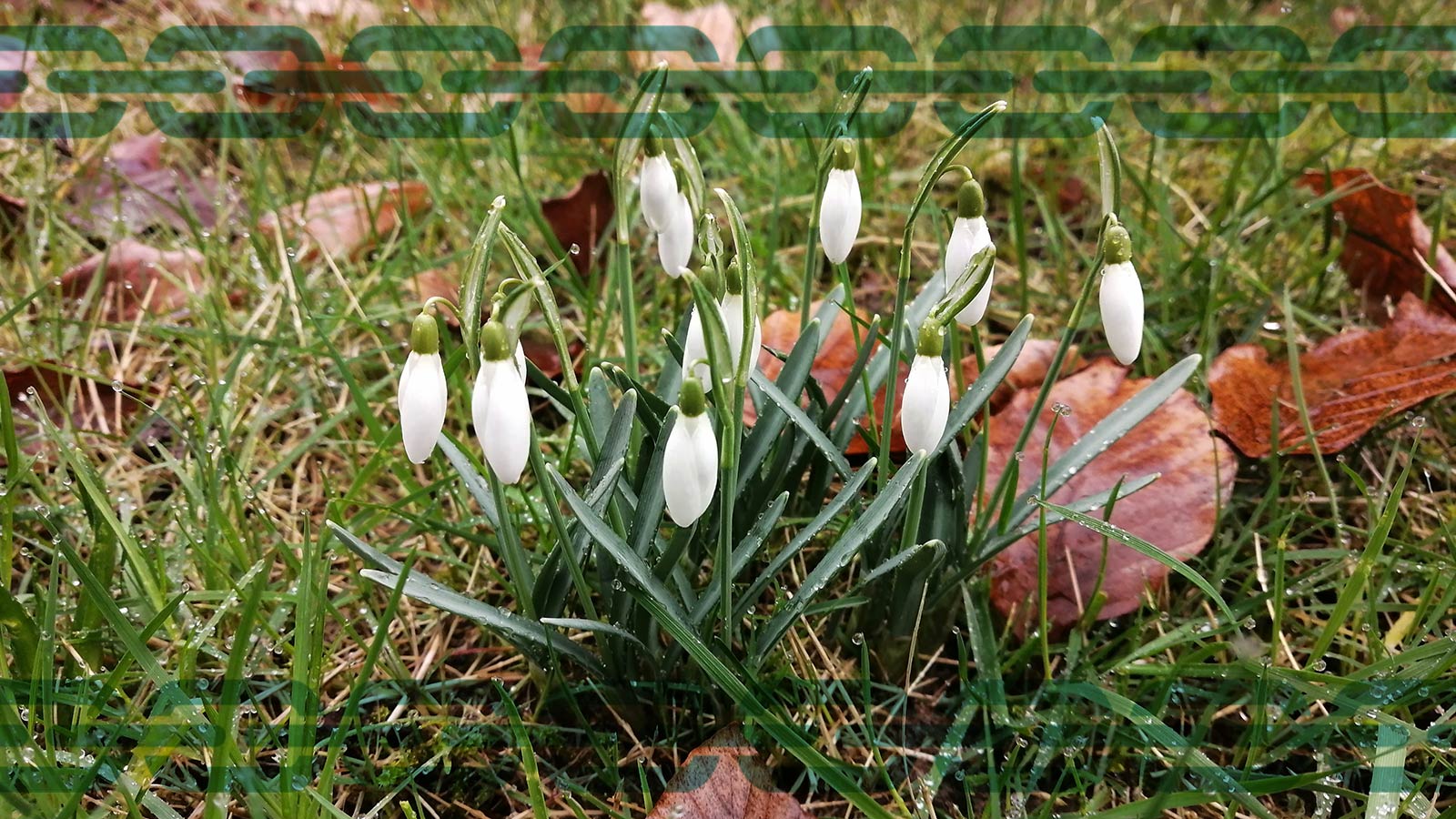
Sustainability Resources
A selection of sustainability resources and links for housing co-operatives and organizations involved with community housing.
- CHF BC Resources
- Building Sustainability and Health, CHF BC Planning & Renewal
- Getting Electric Vehicle (EV) Ready!, Co-op Foundations
- Archived issues of Co-op Foundations (formerly SCCOP) featured stories about sustainability (see, for example the Spring 2011 and Summer 2009 issues)
- CHF BC’s group buying services (like Waste & Recycling) may also be of interest
- CHF Canada Member Resources
- Green Co-op Resources (including a template sustainability policy and Sustainability at Home guide)
- Green microgrant program
- Other Resources
- HW Fletcher Heat Pump Case Study (PDF), City of Vancouver (March 2022)
- Sustainability with livegreen, BC Housing
- Protecting the Environment, The Agency for Co-operative Housing
- A Guide to Sustainable Plumbing in the Home (PDF), CMHC (2106)
- Cooperative sustainability, The International Co-operative Alliance
- Co-operative Home Energy Survey Report. CHF BC (2012)
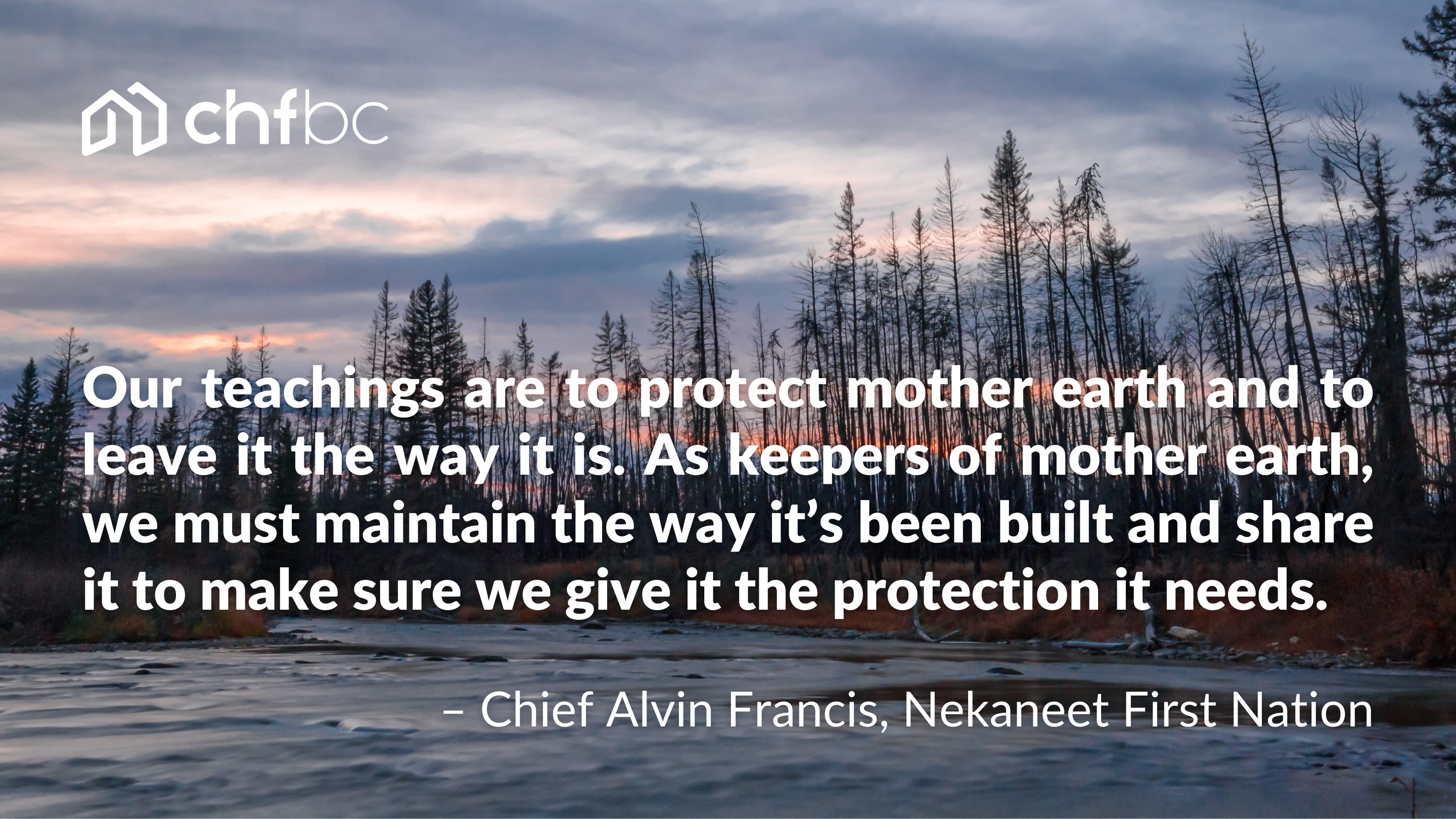
Decolonizing Environmentalism
It is clear there are connections between the goals of Indigenous reconciliation and decolonization, equity, and environmental resilience, In thinking about the environment, we also need to consider past injustices and exclusions, and different perspectives. Here are some links you may want to look at.
- Addressing the Contemporary Climate Crisis by Decolonizing Environmental History (Network in Canadian History & Environment)
- Decolonising Creativity: Why is the Western Standard What We Measure?
- Decolonizing Conservation: a Reading List (UBC Dept. of Geography)
- Decolonizing Environmentalism (Yes Magazine)
- How can we work towards decolonizing conservation? (UBC Dept. of Geography)
- How to Talk About Racial Justice in Sustainability (GreenBiz)
- Shades of Sustainability (website)
- The environmental movement is very white (National Geographic)
- The world spends billions to ‘protect’ Indigenous land. Only 17% goes to Indigenous peoples. (Grist)
- Think people of color don’t care about the environment? Think again. (Grist.org)

Environmental Racism & Justice
Even as housing co-ops have more conversations about sustainability, the environment, and climate change, there’s a risk of paying insufficient attention to marginalized groups and communities. Indigenous, racialized, and poorer communities are often impacted more strongly by climate change, and some policies and practices can even intentionally or unintentionally create more pollution or health risks for already vulnerable communities.
Here are some links that can get you thinking and help start conversations about environmental racism and justice.
- Too White to Solve the Climate Crisis? (Asparagus Magazine)
- Unequal Impact: The Deep Links Between Racism and Climate Change (E360 Yale)
- Environmental Racism & Justice in Canada (The Ecopolitics Podcast)
- The origins of environmental justice—and why it’s finally getting the attention it deserves (National Geographic)
- Why pollution is as much about colonialism as chemicals (Don’t Call Me Resilient podcast)
- Environmentalism Is for Everyone (The Tyee)
- What is ‘climate justice’? (Yale Climate Connections)
- Black, Brown & #Green: Meet the POC youth who are reclaiming the eco revolution (Sharable)

Green YouTube
There are many YouTube content creators that touch on or focus on environmental matters. Here are a few suggestions for channels or videos to check out. For the most part, they're discussing energy or water use in a residential context.
- Climate Lab (Vox + UCLA): Playlist
- Technology Connections
- Engineering with Rosie
- Just have a think
- GreenHome Institute
- Undecided with Matt Ferrell
- Green Energy Future: Rise of the Net-Zero Home
- ASAP Science: Shut it off Playlist
- Climate Adam
